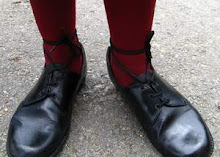1. Do Not Boil Water to try to reduce lead or chemical contaminants. Boiling water increases contamination concentration.
2. Always Use Cold Tap Water: for cooking, baby formula, or drinking.
3. Flush Pipes: before using water for drinking or cooking, run tap water until it’s cold. The Centers for Disease Control recommends flushing tap water 1-2 minutes if the tap has not been used for six hours.
In addition, a study in the New England Journal of Medicine concluded that, "a high fluid intake is associated with a decreased risk of bladder cancer in men" (Michaud, et. al., 1999).
tips for proper hydration
Here are some tips for proper hydration:
1. Drink at least 6-8 glasses of water a day, more if you're exercising.
2. Drink water throughout the day. Don't wait until you feel thirsty.
3. Have water handy, carry a water bottle in the car or at the office.
4. Beverages such as coffee, tea, sodas, or alcohol are not a substitute for water.
5. If you have a hard time remembering to drink water, then establish a routine, drink a glass when you get up. Drink a glass before a meal and after each meal. If you do not have nocturia (getting up frequently at night to urinate), then drink a glass before bed.
Water's Role in the BodyTo help understand importance of water in the body, the International Bottled Water Association (IBWA at www.bottledwater.org) lists 13 things water does in the body:
1. Brain is 75% water / Moderate dehydration can cause headaches and dizziness
2. Water is required for expiration
3. Regulates body temperature
4. Carries nutrients and oxygen to all cells in the body
5. Blood is 92% water
6. Moistens oxygen for breathing
7. Protects and cushions vital organs
8. Helps to convert food into energy
9. Helps body absorb nutrients
10. Removes waste
11. Bones are 22% water
12. Muscles are 75% water
13. Cushions joints

No comments:
Post a Comment